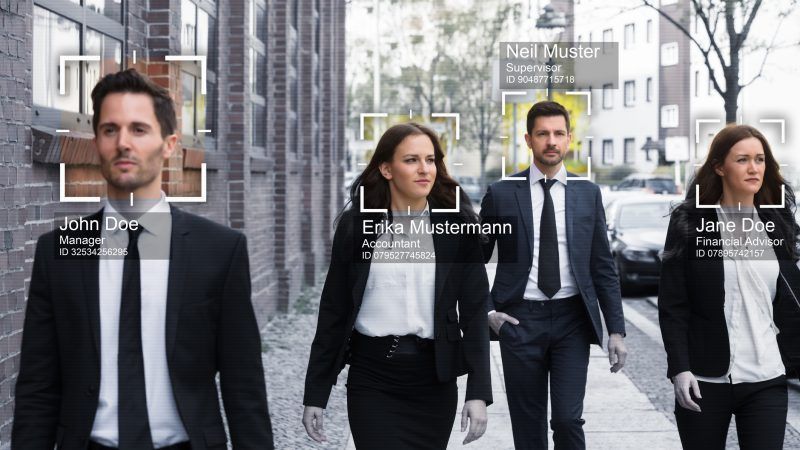Are We Seeing Early Signs of a Facial Recognition Technopanic?
Or are Americans simply wising up to the dangers posed by cops having their "face prints" on file?

San Francisco's board of supervisors voted last week to ban law enforcement use of facial recognition technology. The board enacted the ban in order to forestall such possible misuses by police as surreptitiously tracking citizens' activities in real time and misidentification of innocents based on a still buggy technology.
The usually perspicacious Mercatus Center technology policy maven Adam Thierer suggests that the ban may be an instance of the great facial recognition technopanic of 2019. Is he right?
It is true that some critics have called for banning both the private and government use of facial recognition technology. One of their biggest worries is that government agencies, at the expense of our privacy and liberty, will someday demand that private "face print" databases and video surveillance archives turn over their data in the name of national security.
Thierer acknowledges that the "critics are correct that a real danger exists that facial recognition could make it easier for governments to surveil our movements and profile us in ways that are repressive and unjust." Well, yes. Then he sanguinely continues that "we have faced this same problem many times before. We can and will learn how to govern facial recognition technologies the same way we have with the many other tools that have both dangerous and beneficial uses."
Yes, we have faced that problem before, and I would argue that our efforts to "govern" other surveillance "tools" do not offer hopeful precedents. For example, through Edward Snowden's revelations about federal domestic spying, we know that government agencies have and still do rifle largely unhindered through private communications databases at will. Perhaps federal espionage and law enforcement agencies will be more punctilious about observing our constitutional right to privacy with respect to this emerging surveillance technology, but I wouldn't count on it.
In any case, the San Francisco board's ban does not apply to private uses of facial recognition technology, only to law enforcement and other city agencies. Back in March, I cited the nonpartisan watchdog Project On Government Oversight's (POGO) report called Facing the Future of Surveillance that outlines the dangers to liberty posed by this technology. The POGO report's recommendations for limiting potential government abuse of this technology included the requirement that the government obtain a probable-cause warrant whenever it seeks to use facial recognition to identify an individual. Due to the high risk of misidentification, POGO also called for an indefinite moratorium on incorporating real-time facial recognition systems into police body cameras.
The report also recommends that the government should not be permitted to regularly scan locations and events, tag every individual without identifying them by name, save and update these profiles, and then use this stockpile of data to match a recorded profile once an individual becomes a person of interest. Creation of mass databases of these "metadata profiles" would severely undermine privacy and would risk chilling public participation in sensitive activities.
For his part, Thierer suggests that we should prohibit real-time facial recognition tracking by governments while allowing its use as an ex post investigative tool. That's good. Theirer also recommends:
Law enforcement requests for privately-held facial records should also require a subpoena and high standard of proof of need. Law enforcement officials should also be required to be more transparent about their facial recognition policies, safeguard any biometric identifiers they collect, and delete data after a set period of time. An added problem with the current debate about facial recognition technology is that it puts the cart before the horse. We first need to consider what is worth policing at all and come to grips with the problem of over-criminalization.
Despite decrying an alleged "technopanic," Theirer basically ends up agreeing with the POGO report's recommendations for forestalling possible abuse of facial recognition by law enforcement.
Meanwhile, a bipartisan group of congressional representatives have apparently just agreed to draft legislation—possibly including a moratorium—to regulate law enforcement use of facial recognition. Given Congress's ongoing refusal to rein in domestic spying programs, legislative action on this issue deserves close monitoring.
Ultimately, it doesn't seem too panicky to observe the principles of federalism such that states and localities can explore ways to prevent law enforcement abuse of this emerging surveillance technology.


Show Comments (18)